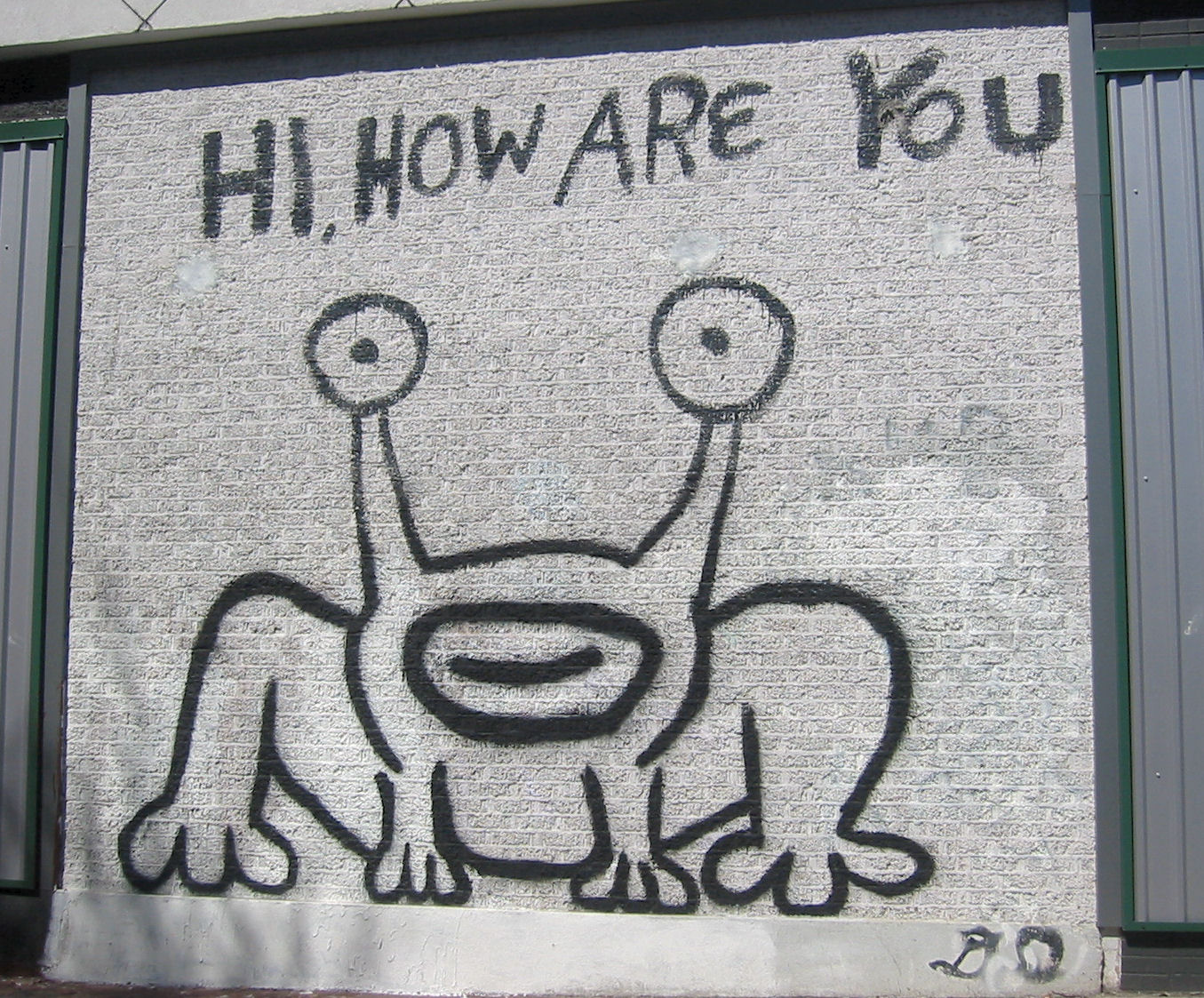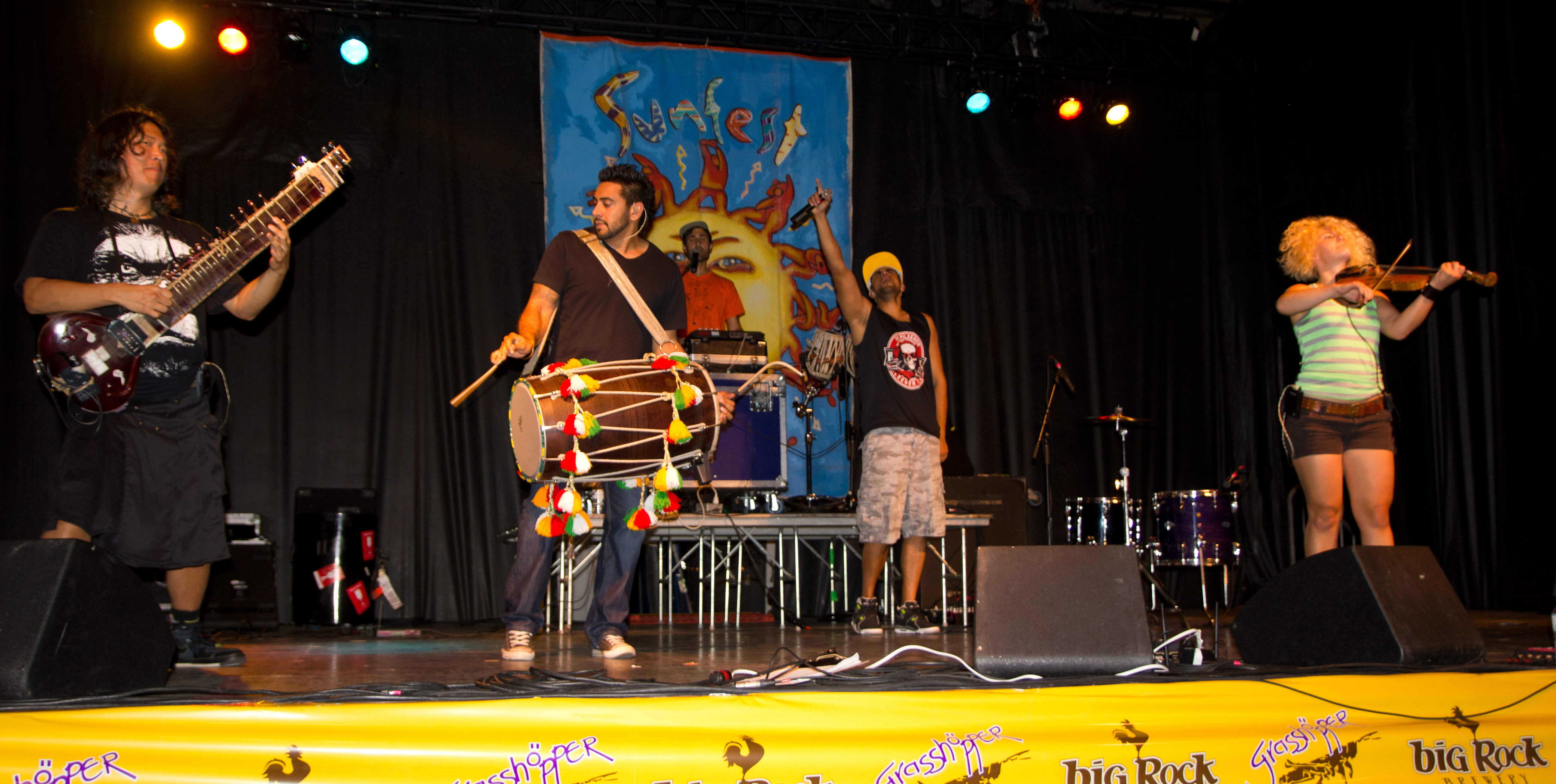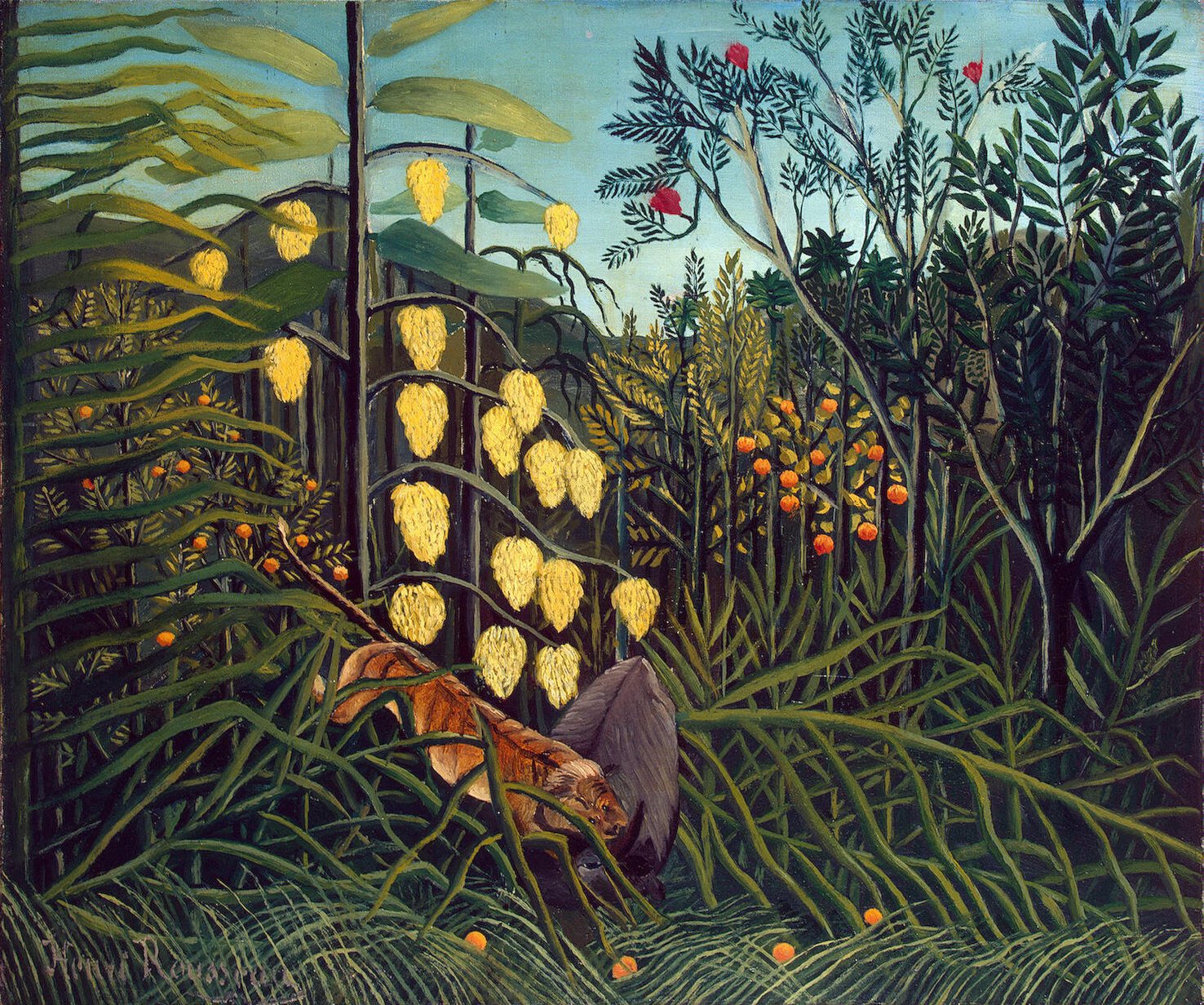|
Outsider Music
Outsider music (from "outsider art") is music created by self-taught or naïve musicians. The term is usually applied to musicians who have little or no traditional musical experience, who exhibit childlike qualities in their music, or who have intellectual disabilities or mental illnesses. The term was popularized in the 1990s by journalist and WFMU DJ Irwin Chusid. Outsider musicians often overlap with lo-fi artists, since their work is rarely captured in professional recording studios. Examples include Daniel Johnston, Wesley Willis, and Jandek, who each became the subjects of documentary films in the 2000s. Etymology The term "outsider music" is traced to the definitions of "outsider art" and "naïve art". "Outsider art" is rooted in the 1920s French concept of "L'Art Brut" ("raw art"). In 1972, academic Roger Cardinal introduced "outsider art" as the American counterpart of "L'Art Brut", which originally referred to work created exclusively by children or the mentally ... [...More Info...] [...Related Items...] OR: [Wikipedia] [Google] [Baidu] |
Outsider Art
Outsider art is Fine art, art made by Autodidacticism, self-taught individuals who are untrained and untutored in the traditional arts with typically little or no contact with the Convention (norm), conventions of the art worlds. The term ''outsider art'' was coined in 1972 as the title of a book by art critic Roger Cardinal (art historian), Roger Cardinal. It is an English language, English equivalent for ''art brut'' (, "raw art" or "rough art"), a label created in the 1940s by France, French artist Jean Dubuffet to describe art created outside the boundaries of official culture. Dubuffet focused particularly on art by those on the outside of the established art scene, using as examples psychiatric hospital patients, hermits, and spiritualists.Cardinal, Roger (1972). ''Outsider Art''. New York: Praeger. pp. 24–30.Bibliography The 20th Century Art Book. New York, NY: Phaidon Press, 1996. Outsider art has emerged as a successful art marketing category; an annual Outsider Art ... [...More Info...] [...Related Items...] OR: [Wikipedia] [Google] [Baidu] |
Jazz
Jazz is a music genre that originated in the African-American communities of New Orleans, Louisiana, in the late 19th and early 20th centuries. Its roots are in blues, ragtime, European harmony, African rhythmic rituals, spirituals, hymns, marches, vaudeville song, and dance music. Since the 1920s Jazz Age, it has been recognized as a major form of musical expression in traditional and popular music. Jazz is characterized by swing and blue notes, complex chords, call and response vocals, polyrhythms and improvisation. As jazz spread around the world, it drew on national, regional, and local musical cultures, which gave rise to different styles. New Orleans jazz began in the early 1910s, combining earlier brass band marches, French quadrilles, biguine, ragtime and blues with collective polyphonic improvisation. However, jazz did not begin as a single musical tradition in New Orleans or elsewhere. In the 1930s, arranged dance-oriented swing big bands, ... [...More Info...] [...Related Items...] OR: [Wikipedia] [Google] [Baidu] |
Camp (style)
Camp is an Aesthetics, aesthetic and sensibility that regards something as appealing or amusing because of its heightened level of artifice, affectation and exaggeration, especially when there is also a playful or Irony, ironic element. ''Camp'' is historically associated with LGBTQ culture and especially gay men. Camp aesthetics disrupt modernism, modernist understandings of high art by inverting traditional aesthetic judgements of beauty, value, and taste, and inviting a different kind of aesthetic engagement. Camp art is distinct from but often confused with kitsch''.'' The American writer Susan Sontag emphasized its key elements as embracing frivolity, excess and artifice.'''' Art historian David Carrier notes that, despite these qualities, it is also subversive and political. ''Camp'' may be sophisticated, but subjects deemed ''camp'' may also be perceived as being dated, offensive or in Bad taste (aesthetics), bad taste.Babuscio (1993, 20), Feil (2005, 478), Morrill (1994 ... [...More Info...] [...Related Items...] OR: [Wikipedia] [Google] [Baidu] |
Novelty Song
A novelty song is a type of song built upon some form of novel concept, such as a gimmick, a piece of humor, or a sample of popular culture. Novelty songs partially overlap with comedy songs, which are more explicitly based on humor, and with musical parody, especially when the novel gimmick is another popular song. Novelty songs achieved great popularity during the 1920s and 1930s. They had a resurgence of interest in the 1950s and 1960s. The term arose in Tin Pan Alley to describe one of the major divisions of popular music; the other two divisions were ballads and dance music. Humorous songs, or those containing humorous elements, are not necessarily novelty songs. Novelty songs are often a parody or humor song, and may apply to a current event such as a holiday or a fad such as a dance or TV program. Many use unusual lyrics, subjects, sounds, or instrumentation, and may not even be musical. For example, the 1966 novelty song " They're Coming to Take Me Away, Ha-Haaa ... [...More Info...] [...Related Items...] OR: [Wikipedia] [Google] [Baidu] |
World Music
"World music" is an English phrase for styles of music from non-English speaking countries, including quasi-traditional, Cross-cultural communication, intercultural, and traditional music. World music's broad nature and elasticity as a musical category pose obstacles to a universal definition, but its ethic of interest in the culturally exotic is encapsulated in ''Roots'' magazine's description of the genre as "local music from out there".Chris Nickson. ''The NPR Curious Listener's Guide to World Music''. Grand Central Press, 2004. pp. 1-2. Music that does not follow "North American or British Pop music, pop and Folk music, folk traditions" was given the term "world music" by music industries in Europe and North America. The term was popularized in the 1980s as a marketing category for non-Western traditional music. It has grown to include subgenres such as ethnic fusion (Clannad, Ry Cooder, Enya, etc.) and worldbeat. Lexicology The term "world music" has been credited to et ... [...More Info...] [...Related Items...] OR: [Wikipedia] [Google] [Baidu] |
Avant-garde Music
Avant-garde music is music that is considered to be at the forefront of innovation in its field, with the term "avant-garde" implying a critique of existing aesthetic conventions, rejection of the status quo in favor of unique or original elements, and the idea of deliberately challenging or alienating audiences. Avant-garde music may be distinguished from experimental music by the way it adopts an extreme position within a certain tradition, whereas experimental music lies outside tradition. Distinctions Avant-garde music may be distinguished from experimental music by the way it adopts an extreme position within a certain tradition, whereas experimental music lies outside tradition. The biggest distinction between avant-garde and experimental music was how it relates to tradition. Other distinctions include subject matter, as well as having a superficial idea to avoid diving into serious subjects. Even though avant-garde and experimental music have many distinctions, experi ... [...More Info...] [...Related Items...] OR: [Wikipedia] [Google] [Baidu] |
Authenticity In Art
Authenticity in art is manifested in the different ways that a work of art, or an artistic performance, can be considered authentic. The initial distinction is between ''nominal authenticity'' and ''expressive authenticity''. In the first sense, nominal authenticity is the correct identification of the author of a work of art; of how closely an actor or an actress interprets a role in a stageplay as written by the playwright; of how well a musician's performance of an artistic composition corresponds to the composer's intention; and how closely an '' objet d’art'' conforms to the artistic traditions of its genre. In the second sense, expressive authenticity is how much the work of art possesses inherent authority of and about its subject, and how much of the artist's intent is in the work of art. For the spectator, the listener, and the viewer, the ''authenticity of experience'' is an emotion impossible to recapture beyond the first encounter with the work of art in its origin ... [...More Info...] [...Related Items...] OR: [Wikipedia] [Google] [Baidu] |
Primitivism
In the arts of the Western world, Primitivism is a mode of aesthetic idealization that means to recreate the experience of ''the primitive'' time, place, and person, either by emulation or by re-creation. In Western philosophy, Primitivism proposes that the people of a primitive society possess a morality and an ethics that are superior to the urban value system of civilized people. In European art, the aesthetics of primitivism included techniques, motifs, and styles copied from the arts of Asian, African, and Australasian peoples perceived as primitive in relation to the urban civilization of Western Europe. In that light, the painter Paul Gauguin's inclusion of Tahitian imagery to his oil paintings was a characteristic borrowing of technique, motif, and style that was important for the development of Modern art (1860s–1970s) in the late 19th century. As a genre of Western art, Primitivism reproduced and perpetuated racist stereotypes, such as the " noble savage", wit ... [...More Info...] [...Related Items...] OR: [Wikipedia] [Google] [Baidu] |
Andrew Lloyd Webber
Andrew Lloyd Webber, Baron Lloyd-Webber (born 22 March 1948) is an English composer and impresario of musical theatre. Several of his musicals have run for more than a decade both in the West End theatre, West End and on Broadway theatre, Broadway. He has composed 21 musicals, a song cycle, a set of Variation (music), variations, two film scores, and Requiem (Lloyd Webber), a Latin Requiem Mass. Several of Lloyd Webber's songs have been widely recorded and widely successful outside their parent musicals, such as "Memory (Cats song), Memory" from ''Cats (musical), Cats'', "The Music of the Night" and "All I Ask of You" from ''The Phantom of the Opera (1986 musical), The Phantom of the Opera'', "I Don't Know How to Love Him" from ''Jesus Christ Superstar'', "Don't Cry for Me Argentina" from ''Evita (musical), Evita'', and "Any Dream Will Do (song), Any Dream Will Do" from ''Joseph and the Amazing Technicolor Dreamcoat''. In 2001, ''The New York Times'' referred to him as "the most ... [...More Info...] [...Related Items...] OR: [Wikipedia] [Google] [Baidu] |
Celine Dion
Céline Marie Claudette Dion (born 30 March 1968) is a Canadian singer. Referred to as the "Honorific nicknames in popular music, Queen of Power Ballads", Dion's powerful, technically skilled vocals and commercially successful works have had a Cultural impact of Celine Dion, significant impact on popular music. Born into a large family in Charlemagne, Quebec, Dion was discovered by her future manager and husband, René Angélil, and emerged as a teen star in her home country with a series of French-language albums during the 1980s. She gained international recognition by winning the Eurovision Song Contest 1988, 1988 Eurovision Song Contest, where she Switzerland in the Eurovision Song Contest 1988, represented Switzerland with the song "Ne partez pas sans moi". Dion went on to release Celine Dion albums discography, twelve English-language albums. ''The Colour of My Love'' (1993), ''Falling into You'' (1996), ''Let's Talk About Love'' (1997), and ''All the Way... A Decade of ... [...More Info...] [...Related Items...] OR: [Wikipedia] [Google] [Baidu] |
The Curious Universe Of Outsider Music
''The'' is a grammatical article in English, denoting nouns that are already or about to be mentioned, under discussion, implied or otherwise presumed familiar to listeners, readers, or speakers. It is the definite article in English. ''The'' is the most frequently used word in the English language; studies and analyses of texts have found it to account for seven percent of all printed English-language words. It is derived from gendered articles in Old English which combined in Middle English and now has a single form used with nouns of any gender. The word can be used with both singular and plural nouns, and with a noun that starts with any letter. This is different from many other languages, which have different forms of the definite article for different genders or numbers. Pronunciation In most dialects, "the" is pronounced as (with the voiced dental fricative followed by a schwa) when followed by a consonant sound, and as (homophone of the archaic pronoun ''thee'') ... [...More Info...] [...Related Items...] OR: [Wikipedia] [Google] [Baidu] |
Independent Music
Independent music (also commonly known as indie music, or simply indie) is a broad style of music characterized by creative freedoms, low-budgets, and a DIY ethic, do-it-yourself approach to music creation, which originated from the liberties afforded by independent record labels. Indie music describes a number of related styles, but generally describes guitar-oriented music straying away from mainstream conventions. There are a number of subgenres of independent music which combine its characteristics with other genres, such as indie pop, indie rock, indie folk, and indie electronic. Additionally, in certain circles, the term indie has taken a definition entirely defined by the "typical" sound of independent music in the 1980s, losing the meaning connected with the style of production. The origins of independent music lie in British independent record labels, such as Rough Trade Records, Rough Trade and Mute Records, Mute. In the 1970s, these labels contributed to the emergence o ... [...More Info...] [...Related Items...] OR: [Wikipedia] [Google] [Baidu] |










